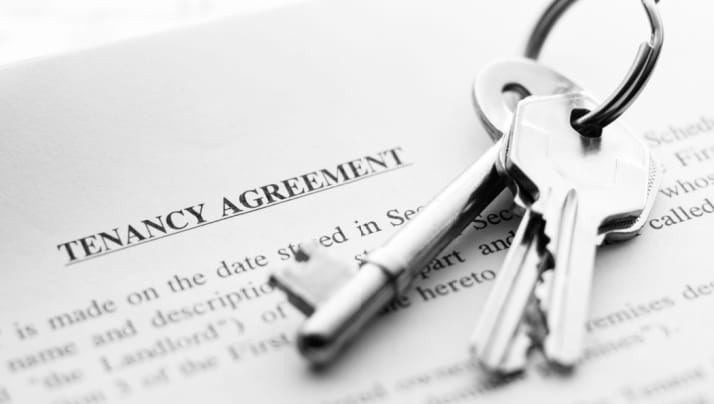Tenancy agreements Types, meanings and legal protection

Synopsis:Explore the meaning, kinds, and obligations of the tenancy contract. Learn about the responsibilities that are legally binding for both landlords as well as tenants. Make sure you are aware and secured in rental situations.
For landlords and tenants Tenancy agreements are an essential document that has to be understood thoroughly and reached upon. It is an official bond between the landlord and tenant. By this agreement, the tenant gets consent from landlords to reside in and use a particular property for a specified period of time. In most cases tenants are required to pay a specific amount.
Each party has specific rights in this agreement that are highlighted. The agreement outlines the time period for which the property is in rental and provides details about the rental amount, payment method, as well as property maintenance obligations.
The following information can help you understand the meaning of the tenancy agreement in greater detail, the various types, and the legal rights that are that are involved.
Tenancy agreements in different forms
The most popular forms of tenancy agreements comprise:
Lease agreement
A lease agreement defines the conditions between a landlord and the tenant for a brief period of. Most often, it lasts for a couple of months, it will require renewal when the term expires. It stipulates the amount of rent as well as due dates and maintenance obligations. The agreement is generally flexible and is geared towards people who don’t intend on prolonged stays, such as professionals or students on temporary assignments.
Lessee
Lessees are those who is granted a lease by the landlord. When the lessee signs a lease contract, they sign a contract with specific terms such as the amount of rent as well as lease duration and other terms. The lease agreement clearly outlines what the lessee is allowed and cannot do when living in the house. Both parties gain from this, the lessee has an apartment and the landlord receives rent.
License
A licensee has permission from the landlord to use the property for a brief period. As opposed to a leasee the licensee isn’t required to sign a lease, and is granted fewer rights. This type of arrangement is often suited to the needs of a temporary pop-up shop or other temporary project. In this arrangement the landlord maintains more control over the property, while the licensee is granted the temporary space they require.
Rights of the law in the tenancy agreement
For tenants
* Privacy rights Each tenant is entitled to the right to be free of any unwanted interferences. Landlords are required to adhere to this rule and not enter an individual tenant’s property without a valid reason or prior notice.
* The heirs of tenants If a tenant dies the heirs are entitled to stay in the rental property. They assume the shoes of the tenant and obtain the same rights. They can continue to live in the rental property according to the conditions laid out in the lease agreement.
• Unfair Evictions: Landlords are not able to expel tenants without a valid reason. Tenants are protected from arbitrary removal, and can ensure that their home is protected. Be sure to know the terms of your lease to make sure your rights are safeguarded and that you are aware.
Rent agreement compliance: Any rent increase must be in line with the terms that the parties have negotiated in their rental agreement. Any sudden increases that are not justified are not permitted.
The Rent Control Act of 1948 ensures landlords as well as tenants their rights. Each state has its own Rent Control Act with only minor modifications. The Act provides a thorough description of the tenant and landlord meaning, as well as the legal requirements and obligations that are involved.
For landlords
• Possession to make repairs. Landlords have the right to take possession of their property for repairs that are essential (with advance notice). Once the repairs are complete the tenant may return and renew the lease.
* Rent collection: Getting rent on time is essential. If tenants do not follow payment plans and landlords are unable to take steps.
* Property inspection: Regular inspections of properties are within a landlord’s right. They can assess the condition of their property and determine any damage that could be a possibility.
* Eviction for infraction: If tenants do not comply with the terms of their lease landlords have the right to start the process of eviction. The violations can vary from a lack of payment to damages to the property.
Deductions from security deposits: At contract termination, landlords may take a deduction off the security deposits any damage to property caused by a tenant. The remainder of the deposit is then transferred to the renter.
Are you not interested in renting an apartment? You might consider financing your housing through IDFC First bank mortgages for homes. Enjoy low interest rates and a variety of properties to choose from. Enjoy the life you’ve always dreamed of. Fill out your mortgage application online and benefit from extended repayment terms that range from 30 years. Take advantage of permanent property ownership now and stay clear of rental issues.
Conclusion
Patta and Chitta provide clear ownership rights for landowners within Tamil Nadu. The online application process and renewal of the documents regularly is essential to ensure legal validity. A robust process allows for the legal usage of property.



